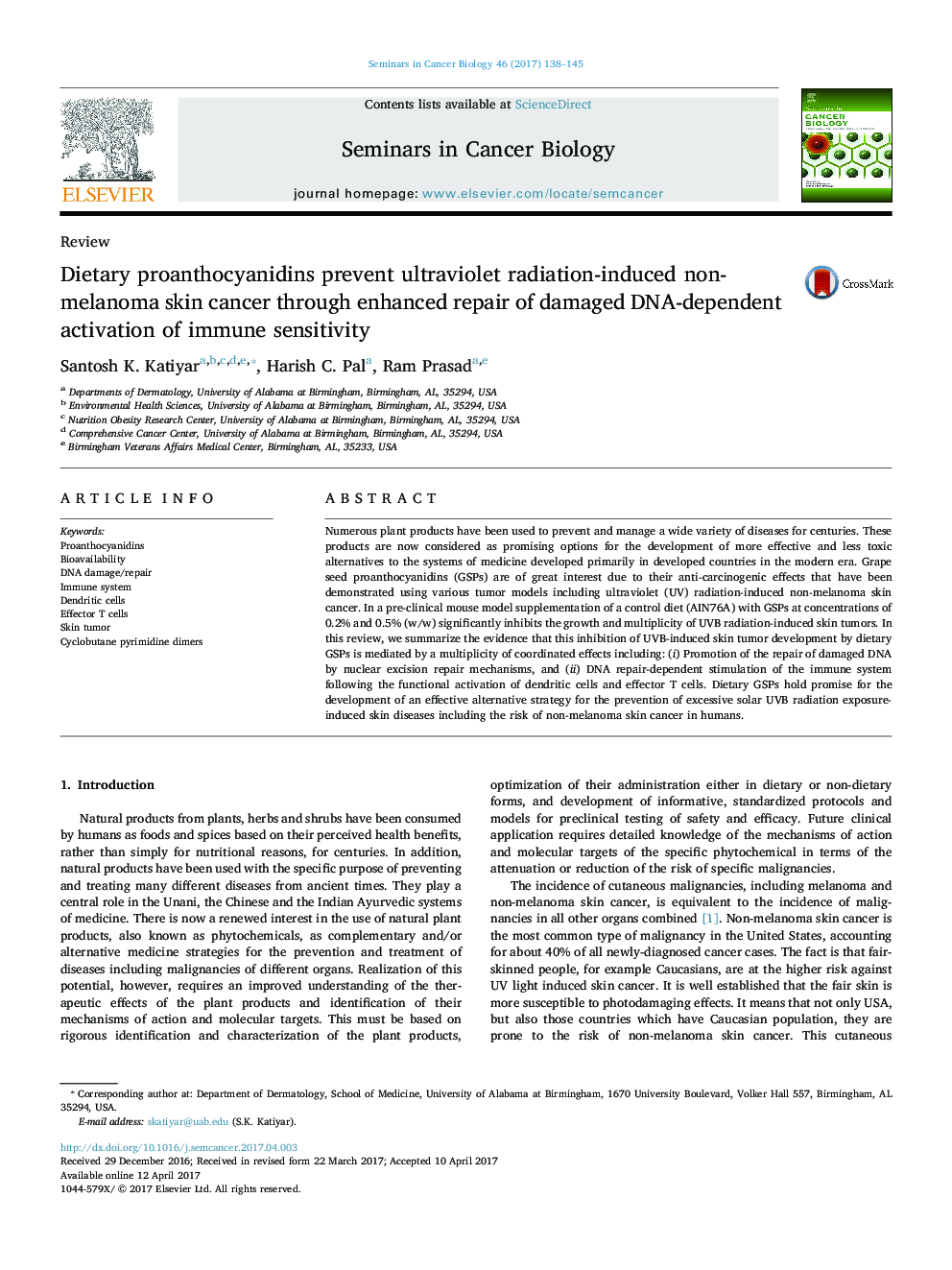| Article ID | Journal | Published Year | Pages | File Type |
|---|---|---|---|---|
| 6481748 | Seminars in Cancer Biology | 2017 | 8 Pages |
Numerous plant products have been used to prevent and manage a wide variety of diseases for centuries. These products are now considered as promising options for the development of more effective and less toxic alternatives to the systems of medicine developed primarily in developed countries in the modern era. Grape seed proanthocyanidins (GSPs) are of great interest due to their anti-carcinogenic effects that have been demonstrated using various tumor models including ultraviolet (UV) radiation-induced non-melanoma skin cancer. In a pre-clinical mouse model supplementation of a control diet (AIN76A) with GSPs at concentrations of 0.2% and 0.5% (w/w) significantly inhibits the growth and multiplicity of UVB radiation-induced skin tumors. In this review, we summarize the evidence that this inhibition of UVB-induced skin tumor development by dietary GSPs is mediated by a multiplicity of coordinated effects including: (i) Promotion of the repair of damaged DNA by nuclear excision repair mechanisms, and (ii) DNA repair-dependent stimulation of the immune system following the functional activation of dendritic cells and effector T cells. Dietary GSPs hold promise for the development of an effective alternative strategy for the prevention of excessive solar UVB radiation exposure-induced skin diseases including the risk of non-melanoma skin cancer in humans.
